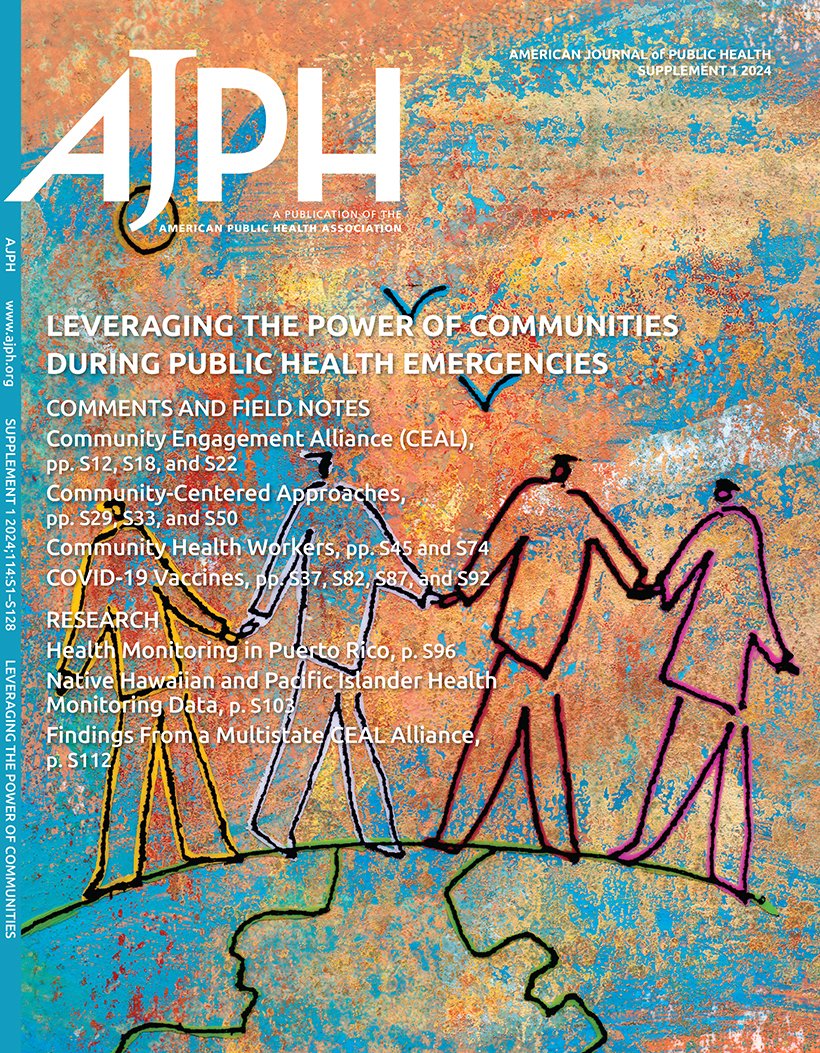2017-2023年德克萨斯州堕胎禁令前后的流产输血情况。
IF 9.6
1区 医学
Q1 PUBLIC, ENVIRONMENTAL & OCCUPATIONAL HEALTH
引用次数: 0
摘要
目标。为了衡量2021年参议院8号法案(SB8)禁止在检测到胎儿心脏活动后堕胎(6周禁令),以及2022年多布斯诉杰克逊最高法院判决禁止在所有妊娠期堕胎(全面禁令)后执行的禁令后,德克萨斯州与妊娠丢失相关的输血变化。方法。我们使用了2017年1月至2023年9月期间德克萨斯州所有医院、急诊和门诊手术设施的管理数据。使用时间序列分析,我们评估了在6周和完全禁止后接受输血的流产次数(严重发病率的一个指标)是否与预期不同。结果。我们确定了320 696例流产和7408例相关输血。在为期6周的禁令期间,输血数量与预期相似。在全面禁止期间,季度平均输血量为385.8次,比历史数据预测的335.1次多出50.7次(15.1%)(2-样本t检验P = .03)。结论。德克萨斯州的全面堕胎禁令与经历过流产的人的严重发病率增加有关。公共卫生。2025年9月11日提前在线发布:e1-e8。https://doi.org/10.2105/AJPH.2025.308224)。本文章由计算机程序翻译,如有差异,请以英文原文为准。
Blood Transfusions for Pregnancy Loss in Texas Before and After Abortion Bans, 2017‒2023.
Objectives. To measure changes in blood transfusion related to pregnancy loss in Texas after the 2021 Senate Bill 8 (SB8), which banned abortion after the detection of fetal cardiac activity (6-week ban), and the ban that was enforced after the 2022 Dobbs v Jackson Supreme Court decision, which banned abortion at all gestational durations (total ban). Methods. We used administrative data from all Texas hospital, emergency, and ambulatory surgical facilities from January 2017 through September 2023. Using time series analysis, we assessed if the number of pregnancy loss encounters that received blood transfusions, an indicator of severe morbidity, was different than expected after the 6-week and total bans. Results. We identified 320 696 pregnancy loss encounters and 7408 related blood transfusions. During the 6-week ban, transfusion numbers were similar to expected. During the total ban, the quarterly mean number of pregnancy loss encounters that received blood transfusions was 385.8, which was 50.7 more transfusions (15.1%) than the 335.1 expected based on historical data (2-sample t test P = .03). Conclusions. Texas's total abortion ban was associated with an increase in severe morbidity among people experiencing pregnancy loss. (Am J Public Health. Published online ahead of print September 11, 2025:e1-e8. https://doi.org/10.2105/AJPH.2025.308224).
求助全文
通过发布文献求助,成功后即可免费获取论文全文。
去求助
来源期刊

American journal of public health
医学-公共卫生、环境卫生与职业卫生
CiteScore
9.50
自引率
3.90%
发文量
1109
审稿时长
2-4 weeks
期刊介绍:
The American Journal of Public Health (AJPH) is dedicated to publishing original work in research, research methods, and program evaluation within the field of public health. The journal's mission is to advance public health research, policy, practice, and education.
 求助内容:
求助内容: 应助结果提醒方式:
应助结果提醒方式:


